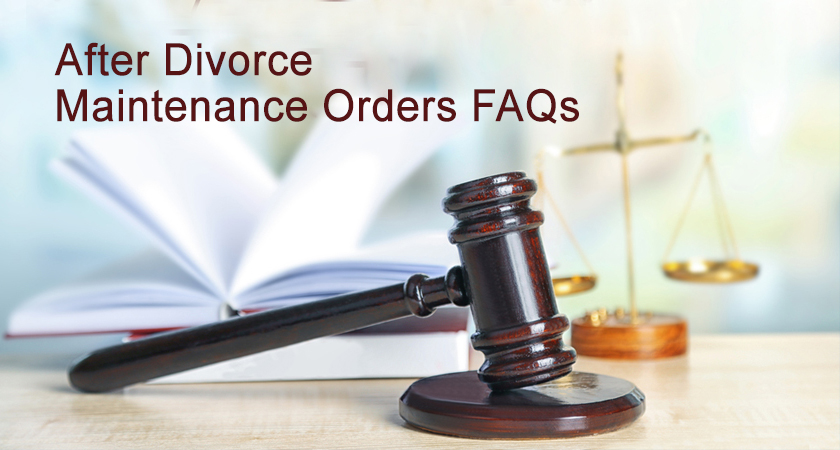After Divorce: Maintenance Orders FAQs

Can I get maintenance from my ex-husband/ex-wife?
Husbands have a duty to maintain his wife, when they are still married and even after marriage. Meanwhile, a wife’s duty to maintain her husband only arises if he is incapacitated.
What can I do if my ex-husband/ex-wife refuses to give me maintenance?
If your former spouse refuses to provide you maintenance, you can approach a top divorce lawyer, who will assist you in filling the legal papers required to apply to court for the enforcement of your former spouse’s duty to maintain you.
Can the quantum of maintenance be varied?
Courts may increase or decrease the sum of maintenance to be paid, where it is satisfied that the order made was based on any misrepresentation, mistake of fact, or when there has been a material change in circumstances. Always seek the best divorce lawyers with experience in maintenance matters to advise you on your position.
What if my husband or I remarries?
If you are a wife, your former husband is released from his duty to maintain you once you remarry.
In the reverse situation where your husband remarries, his pre-existing financial obligations owed to you, still continues on. However, his new financial commitments to his new family may be a factor to consider whether there has been a material change of circumstances, to justify the downward variation to the quantum of maintenance to pay.
My husband refuses to pay maintenance. What can I do?
In the situation where your former spouse refuses or neglects to pay maintenance, you may apply to the court with the help of experienced divorce lawyers. There are various court orders the court may make.
One method of enforcement is via an attachment earnings order, that directs the employer of the defendant to deduct the amount payable from his salary and pay it into court as satisfaction of the maintenance order. Other methods include an imposition of fine, imprisonment of the defaulting pay or the garnishing of debts owed to him.












